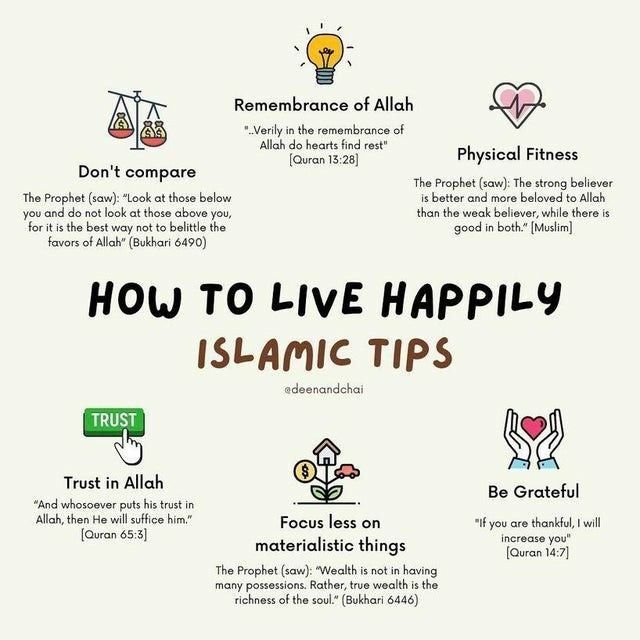
Juggling Ramadan and Mental Health: Practicing Self-Compassion While Fasting
Ramadan is a time of deep spirituality, self-reflection, and discipline. But let’s be real—it can also be physically and emotionally challenging, especially when you’re balancing mental health struggles. Between fasting, disrupted sleep, and daily responsibilities, it’s easy to feel overwhelmed.
The good news? Islam encourages self-compassion. You’re not meant to burn out—you’re meant to grow, and that includes taking care of your mind and heart.
Here’s how you can practice self-compassion while fasting and make Ramadan a source of healing rather than stress.
1. Acknowledge Your Feelings—Without Guilt

📖 “Allah does not burden a soul beyond what it can bear.”
📌 (Surah Al-Baqarah 2:286)
Feeling anxious? Exhausted? Low on energy? That’s okay. Ramadan is not about suppressing emotions—it’s about understanding them with kindness.
✅ What You Can Do:
- Remind yourself that struggling doesn’t make you “less faithful.”
- Journal your feelings without judgment—it helps process emotions.
- Talk to Allah about your struggles. Your duas don’t need to be perfect; they just need to be sincere.
🔹 Reflection: Am I being kind to myself when I feel overwhelmed, or am I pushing myself too hard?
2. Listen to Your Body & Mind
📖 “And do not kill yourselves [or one another]. Indeed, Allah is to you ever Merciful.”
📌 (Surah An-Nisa 4:29)
Fasting is an act of devotion, but it’s not meant to harm you. If you have mental health conditions like anxiety or depression, fasting can sometimes make symptoms worse—especially if you’re sleep-deprived or dehydrated.
✅ What You Can Do:
- Prioritize hydration during suhoor and iftar—it affects mood and energy levels.
- Don’t skip suhoor—even something small helps stabilize blood sugar.
- Take naps if needed—sleep is crucial for emotional balance.
- Know when to take a break—Islam allows flexibility in fasting for those who are unwell.
🔹 Reflection: Am I pushing through exhaustion, or am I giving myself permission to rest?
3. Avoid Comparing Your Ramadan to Others

📖 “So be not weak and do not grieve, and you will be superior if you are [true] believers.”
📌 (Surah Aal-e-Imran 3:139)
Social media can make it seem like everyone else is having a ‘perfect’ Ramadan—praying all night, finishing the Qur’an multiple times, making elaborate iftars. If your Ramadan looks different, that’s okay. Worship is personal.
✅ What You Can Do:
- Unfollow or mute accounts that make you feel guilty or inadequate.
- Celebrate your own wins, no matter how small—one sincere prayer is more valuable than mindless rituals.
- Remember: Allah values sincerity over quantity.
🔹 Reflection: Am I appreciating my own efforts, or am I measuring myself against unrealistic standards?
4. Use Dhikr & Dua as Tools for Mental Peace
📖 “Verily, in the remembrance of Allah do hearts find rest.”
📌 (Surah Ar-Ra’d 13:28)
When anxiety creeps in or emotions feel heavy, dhikr (remembrance of Allah) can be a powerful grounding tool. It doesn’t have to be complicated—just a few words can bring peace.
✅ Simple Dhikr to Try:
- Feeling anxious? Say Hasbunallahu wa ni’mal wakeel (Allah is sufficient for us, and He is the best disposer of affairs).
- Feeling drained? Say La hawla wa la quwwata illa billah (There is no power nor strength except with Allah).
- Need comfort? Repeat Astaghfirullah (I seek forgiveness from Allah) to release worries.
🔹 Reflection: What’s one dhikr I can repeat when I start feeling overwhelmed?
5. Set Realistic Worship Goals

📖 “The most beloved deeds to Allah are those that are consistent, even if they are small.”
📌 (Sahih Muslim, 782)
It’s easy to feel like you’re not doing enough—but Islam values consistency over perfection. If reading a full juz of Qur’an daily feels overwhelming, start with just one verse.
✅ What You Can Do:
- Break up your worship into small chunks (e.g., read Qur’an for 5 minutes after each prayer).
- Choose one thing to focus on (e.g., making duas, giving charity, or praying on time).
- Be kind to yourself—even if all you do is whisper Alhamdulillah, that is still an act of worship.
🔹 Reflection: Am I focusing on small, meaningful acts of worship, or am I pressuring myself to do more than I can handle?
6. Seek Support When You Need It
📖 “And cooperate in righteousness and piety.”
📌 (Surah Al-Ma’idah 5:2)
Struggling in Ramadan doesn’t mean you have to struggle alone. Talk to friends, family, or a therapist if you’re finding it hard to cope. Islam encourages seeking help—for both physical and mental well-being.
✅ What You Can Do:
- Reach out to a friend who understands your struggles.
- Join a supportive community—whether online or in person.
- Remember: Seeking professional help is not a sign of weak faith; it’s a form of self-care.
🔹 Reflection: Am I allowing myself to lean on others when I need support?
7. Accept That Your Best is Enough

📖 “And your Lord is the Most Forgiving, Full of Mercy.”
📌 (Surah Al-Kahf 18:58)
There will be days when you feel tired, unmotivated, or emotionally drained—and that’s okay. Ramadan is not about perfection, it’s about connection—with yourself and with Allah.
✅ What You Can Do:
- Let go of guilt if you’re struggling. Allah sees your efforts.
- Make a simple dua before bed—even if it’s just “Ya Allah, guide me.”
- Trust that Allah’s mercy is greater than your struggles.
🔹 Reflection: Am I being as kind to myself as I would be to a friend?
Final Thoughts: Your Mental Health Matters in Ramadan
Ramadan is about spiritual renewal, but that doesn’t mean neglecting your well-being. Taking care of your mental health is not selfish—it’s part of honoring the body and mind Allah has entrusted you with.
✨ What’s one way you practice self-compassion in Ramadan? Let’s support each other! 💙
No Responses